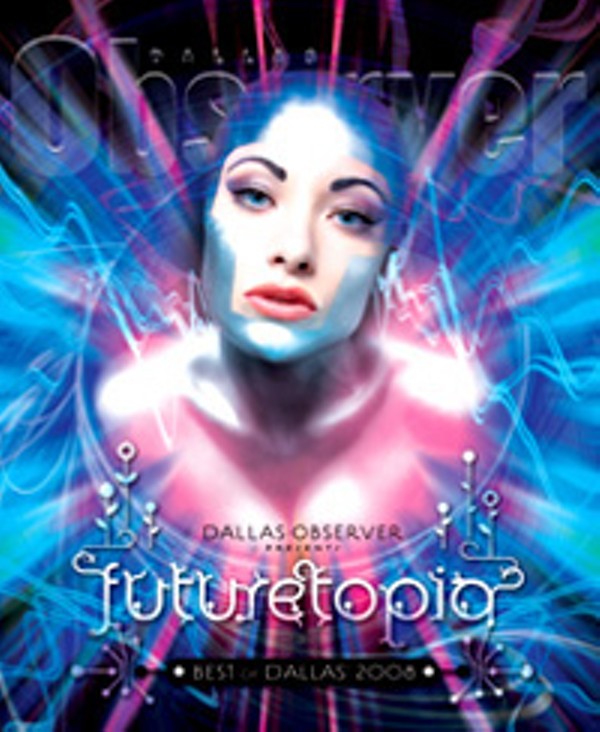How do the gays always seem to be the first to know...everything? Like how to keep abreast of local festivities. And where to get new breasts. For those savvy souls who insist on keeping up with all the timely tea, Gay List Daily is pouring the brew. Delivered directly to your e-mail inbox, Gay List Daily, created by Dallas PR pro Cooper Smith, is dedicated to making the trendy gay individual even more trendy and gay. Readers aren't always gay, and the content won't always be fey, but the commentary is always fabulous. Mary, it's free!
Best Younger Actor
Andrew Phifer

When he's older, Andrew Phifer would like to play Elwood P. Dowd, the delusional lead in the old comedy chestnut Harvey. For now he's content being cast as callow youth, such as in recent co-starring roles at Uptown Players (Bent) and Theatre Three (House and Garden). He's good at playing teenage boys hopelessly in love with boys and/or girls. "It does a soul good" to dive deeply into emotional waves, says the lanky 24-year-old, who grew up in Jacksonville, Texas, and graduated from Austin College. A future in dramaturgy or arts administration is a possibility, says Phifer, but for now he's happy to bounce from theater to theater. Best advice he ever got? "You're always auditioning," he says. "Your professionalism, or lack thereof, on one show can create a reputation." His rep so far? Good guy, great young actor.
- 3636 Turtle Creek Blvd., Dallas, 75219 Map
- 214-219-2718
- www.uptownplayers.org
Best Younger Actress
Maxey Whitehead
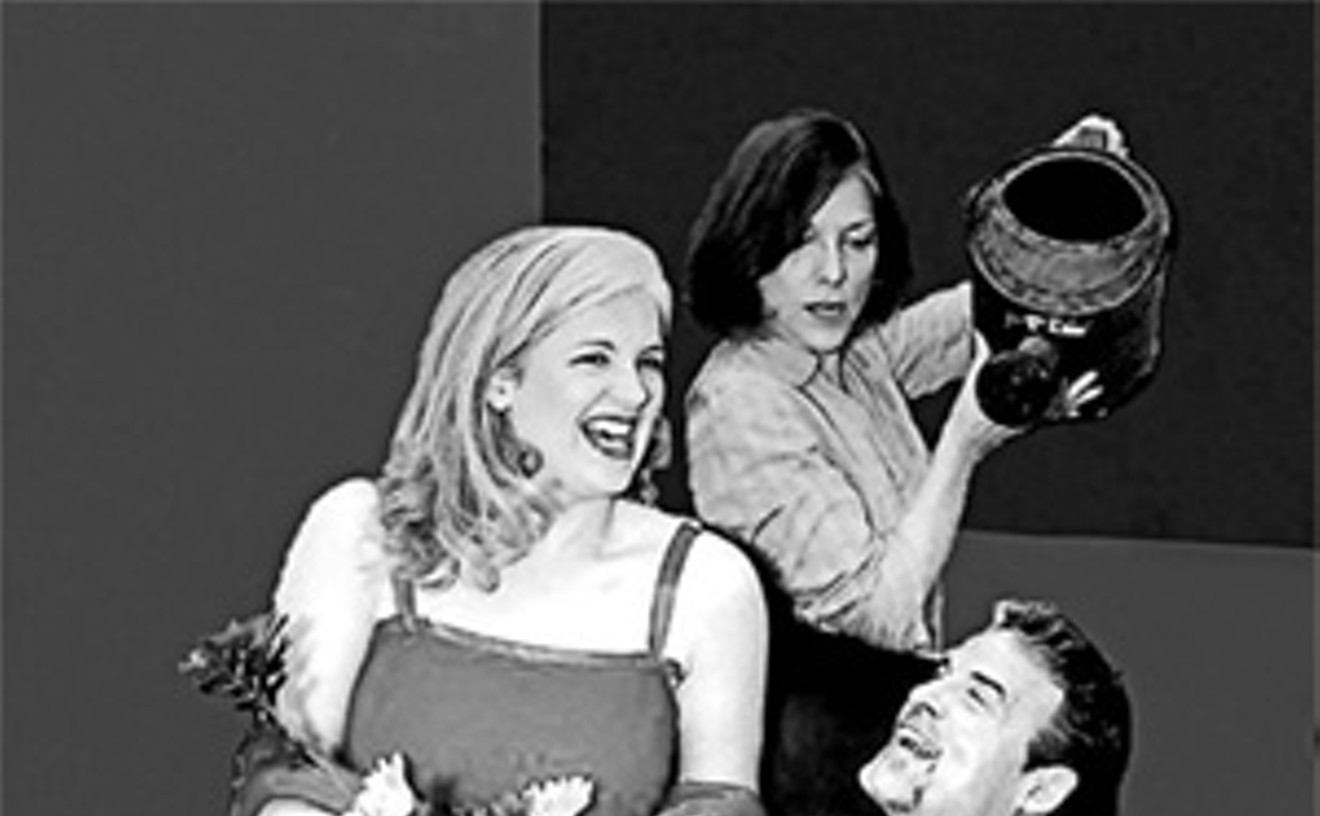
She's 27 and looks 17, something petite redhead Maxey Whitehead has used to great effect in performances at WaterTower, Theatre Three and Second Thought Theatre. The Addison native and graduate of Texas State University specializes in playing wayward kids, and no role was more troubled than Lissie, the runaway shacked up with her high school teacher in Steven Walters' gritty play Snake Eyes at the Mardi Gras Motel, performed at Second Thought. It was "just a blessing of a role," says Whitehead, who was absolutely riveting in the part. "I got to work with an incredible company of people, and I had never played a part like that before." Calling Dallas "a lovely place to work" as an actor, Whitehead hopes to move away from teenage roles and into ingénue parts. "I am an actor because I think the world today is starving for truth and bravery," Whitehead says. "I believe that's what people come to theater to see, and it is my goal every day to serve them with my nerve and imagination." That's worth applauding.
- 2800 Routh St., Dallas, 75201 Map
- 214-871-3300
- www.theatre3dallas.com
In 1958, with the new Kalita Humphreys Theater rising on the east bank of Turtle Creek, architect Frank Lloyd Wright made a prediction about his then-ultra-modern edifice: "One day this will mark the spot where Dallas once stood."
Audacious, perhaps, but an interesting observation about the often underappreciated significance of the performing arts in big-city history.
Half a century from now, Wright's poured-concrete marvel may be as dusty and forgotten as Margo Jones' once-revolutionary theater-in-the-round in Fair Park (still there, but seldom used since Jones' death in 1955). In 2009 the Dallas Theater Center company moves out of Kalita, where it has produced shows since 1959, and into the new $60 million Dee and Charles Wyly Theatre at the Dallas Center for Performing Arts downtown.
Dallas theater, it seems, always has reflected a tendency of status-seeking audiences and benefactors to equate great art with how impressive the building is around it, the shinier and newer the better.
By 2058, however, the Wyly, designed by international architecture star Rem Koolhaas, will be the same age as Wright's Kalitais now. And what arebeing touted now as the Wyly's whizbangtechnical gewgaws (computerized lighting!) and "cutting-edge" theatrical design features (hydraulic rows of seats!) could be as old-fashioned as gas footlights and trapdoors were when Wright planned Kalita Humphreys.
One thing's for certain, though: Whatever the year, whatever the venue, people will still gather to hear live actors and probably not wispy holograms speak lines from Medea, Hamlet, Our Town and A Christmas Carol. These are the "classics." Year after year, decade after decade, these plays never seem to go away (no matter how much some critics and theatergoers wish they would).
Live theater has lived on through the millennia with only the occasional blackout. In ancient Rome, the government shut down theaters, calling them centers of politically subversive thought. That ban lasted more than 1,700 years, well into the Christian era. The Renaissance stirred the arts back to life, and it's been the smell of the greasepaint and the roar of the crowd ever since.
Art can be a fragile thing. But even in the worst of modern times, American theater has flourished. After 9/11, large regional theaters such as Dallas Theater Center struggled to survive as corporate donations and individual ticket sales shrank. But actors need to act and playwrights didn't stop typing new plays. So in Dallas and around the country, new, small theater companies popped up, performing in community centers, public libraries, art galleries and other low-overhead acting spaces. In Dallas it's possible to see up to five new productions every week of the year, produced by more than 60 active theater companies on stages as large as the Music Hall at Fair Park and as tiny as the basement-level Theatre Too. From splashy Broadway musical road companies to tour de force one-man shows at the Festival of Independent Theatres, the range of talent currently treading local boards is impressive and encouraging.
That bodes well for the future of the arts here, say theater directors. "In 50 years, I'd love to have a theater community in Dallas not unlike Chicago's or Seattle's," says director René Moreno, who has staged shows at Contemporary Theatre, Theatre Three, Uptown Players and Dallas Theater Center. "I'd love for this to be a place where artists can come and put roots down and really grow and do great work. Maybe have several big Equity houses, not in competition with each other, but with different points of views and different goals. I would hope that by the time we get to 50 years from now, we have several organizations as big as Dallas Theater Center." (DTC is the second-largest League of Resident Theatres member company in Texas, behind Houston's Alley Theatre.)
Technological improvements aside—maybe someday someone will invent a microphone pack that doesn't short out on opening night—theater will always be about audiences sharing space with living, breathing actors.
"I hope it never stops being that," says director Cheryl Denson, who's worked in Dallas theater more than 30 years. "The excitement of theater has always been in human beings responding to each other without being manipulated by technology."
Moreno says he'd like to see theater production get simpler, less dependent on technology and special effects. "There's nothing like being in a theater with live actors onstage. It's a need people have in their community," he says. "Technology won't kill theater any more than movies killed theater. In the end what theater is about is storytelling. It goes back to people sitting around a campfire and someone telling a story that could perhaps change someone else's life. That's what it was, is and will always be." Elaine Liner
SCENES: In the Cards
Hotel ZaZa

Enter the hotel that is ZaZa—a feast of oversized furniture, oversized rooms and oversized egos—walk halfway down a candle-lit, eclectically designed hallway, and there beside a towering plant sits Valentina Burton, also known as The Fortune-Teller of Dallas.
For the last four years each Wednesday through Saturday night, Burton has been the in-house soothsayer for the hotel, reading the tarot cards of touring rock stars, local sports celebs, members of the traveling business class, and those voguers, poseurs and $30,000 millionaires who make Dallas just so damn Dallas.
"There can be weird juxtapositions," Burton says. "You have people from Idaho rubbing up against Tommy Lee."
It's not altogether easy telling fortunes to the fortunate and the inebriated in the anything-goes atmosphere that the hotel encourages, but Burton fits in with the feel of the place. While at ZaZa, she eschews the gypsy encampment look and goes for a more stated Gothic elegance, a sort of "Elvira meets Cruella De Vil," she says. But she has learned that she cannot read solo in these zany environs, which is where David Bower, her "wrangler" and a palmist in his own right, comes in, hustling away those drunks, letches and interlopers who might otherwise destroy Burton's focus. "I've tried this without David, and it's like the Vietnam of reading," she says.
The air of mystery that surrounds Burton is undercut when she reveals that she is a 1979 graduate of Richardson High School—"the land of Jessica Simpson and TI," she says. She can't remember a time when she didn't read cards, but she first became an illusionist because she saw it as a more stable vocation.
"I didn't want to live in a funky little house with a neon hand in the window by the airport," she says.
But she veered into fortune-telling after receiving encouragement from those for whom she read.
Just how it all works doesn't appear to concern her. Burton just knows that after a "querent" shuffles the deck of tarot cards, cuts them into three stacks, picks the stack that feels "different" and asks her a question, the cards form patterns from which she says she can divine the future.
On this pleasant August eve, among the zeitgeist of ZaZa, she agrees to forecast the future of Dallas. Because so many questions she receives deal with affairs of the heart, the Dallas Observer's first question seeks to keep her in her comfort zone:
Will Jenny the Elephant ever know joy in Dallas?
Elephants are extremely social animals, and there is grief around her now. But out of grief comes celebration and a new relationship. There will be a new elephant joining her, and yes, she will know joy, the joy of a new friend. [A new elephant is coming to the Dallas Zoo; Burton could have read about it in the press, but claims to know nothing about current events.]
Which street, if any, will be named César Chávez?
It's a street with a lot of commercial activity...
Industrial Boulevard?
It's not the obvious choice...It's something different from what has been suggested. It's near a pretty park that is developed with private donations and public money for families...The road goes right along side it.
Seems kind of vague—the high-speed toll road in the Trinity River Project?
No, not a tollway.
Do you know the exact location?
That's all I am getting.
OK. Do you see a flood of biblicalproportions on the Trinity River?
Yes.
Yes? [so much for vague]
It creates havoc not just in the poorer neighborhoods, but there is expensive property where singles live. The flooding happens because things are not in balance. And there is a person who warned about it. He gets to be right.
Jim Schutze?
Possibly...It will happen within the next two to five years...but out of the ruin, things get done right.
You mean the Trinity River Project?
The flood may help that happen...It will become the festival center for the town—a wonderful green place of balance.
Will the convention center hotel happen, and if so, be profitable?
I see a big mess, a lot of drama around it. Getting there is ridiculous, but it needs a champion. There is one...And it will be profitable, but there has to be a lot of collaboration.
What will the economy in Dallas look like 20 years from now?
I love these questions—I usually get, "Is my baby's daddy going to pay child support?"—but yes, things are good. These are really fantastic cards, especially around real estate and new business...There is rapid growth around something—maybe gambling or casinos...But it may not serve the greater good.
Will global warming affect Dallas in the year 2030?
It will be hotter like Phoenix...It affects our agriculture, what is grown here...though nothing cataclysmic.
Who will be the next mayor of Dallas?
This is someone who is very down to earth...He wants everyone to be happy...may open his mouth a lot and insert his foot. He is a very idealistic person. I like this person very much.
Who will be the next president of the United States?
I did a layout on this yesterday, and the same cards came up. It's the one who follows his own heart...
And his name is...
Barack Obama.
And I suppose you think the Cowboys are going to win the Super Bowl too?
Even with an infusion of new talent, they are still stuck and won't win...They work hard but they don't know which direction to head. That could be a coaching problem.
Are you saying Wade Phillips is going to get fired?
I'm not saying anything. It's the cards that speak and tell the future.
Mark Donald
- 2332 Leonard St, Dallas, 75201-2020 Map
- 214-468-8399
- www.hotelzazadallas.com
Best Gay Bar
Buddies II
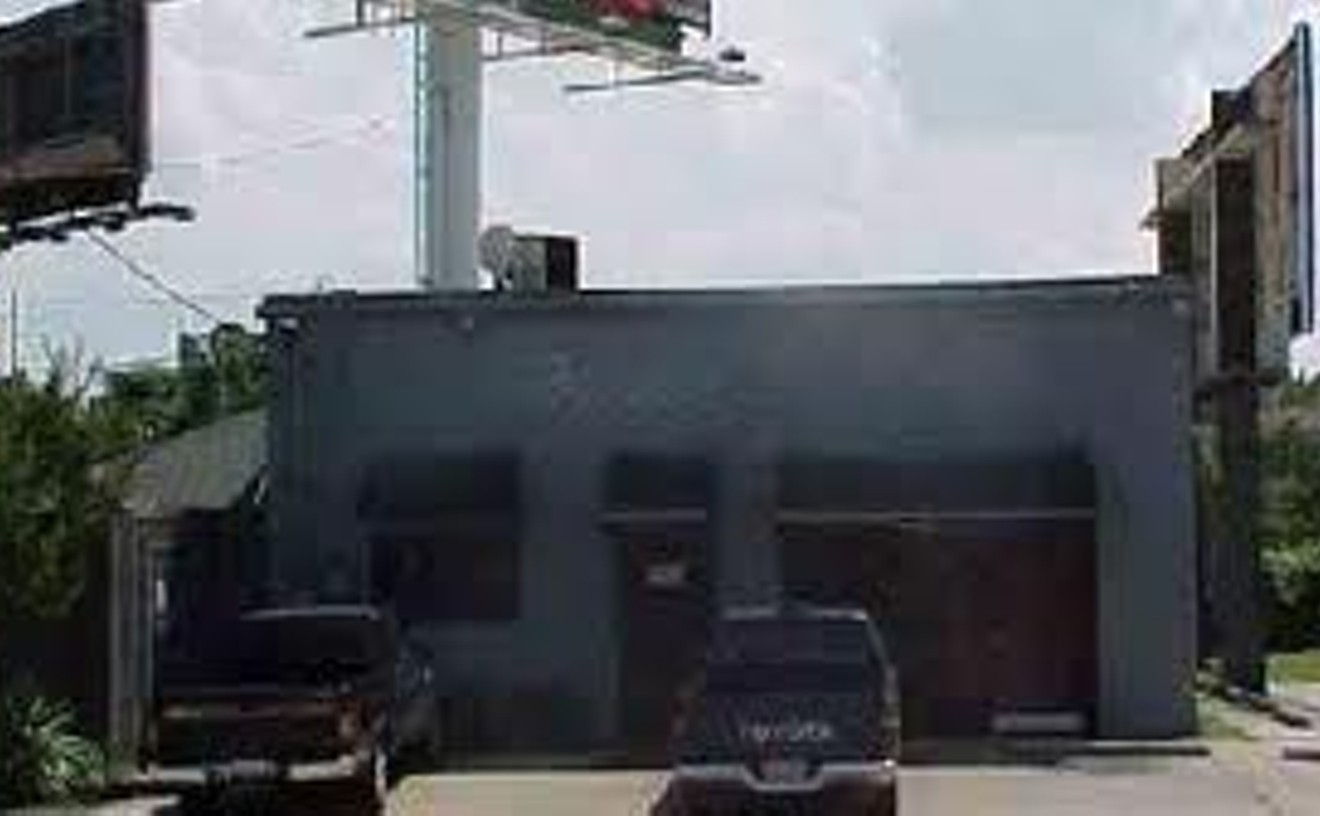
Ya know how women are from Venus? And how that means that, unlike men, we need more than visual stimulation when it comes to the bedroom? How we get off less on naughty images than our imaginations, and how we need more than just sex. We need foreplay and romance and flowers ...snnnnzzzzzzz. Sorry, fell asleep there for a minute! See, that shit is so 1992. You'll be glad to know the ladies these days are as debauched and exploitative as a night in Bangkok—we've finally claimed our inner perverts! Which brings us to Buddies II. The venerable Maple Avenue watering hole has always been a spot to find ladies who love ladies, but they've upped the ante. Entertainment there goes so far beyond the normal karaoke. Once a month or so, for instance, you can catch the "Barely Legal" stage show, featuring some of the hottest young thangs to ever titillate. There are also recurring shows featuring Dallas dynamite drag kings, the Dukes of Dallas, the most adorable young bois to never pack a penis. And there's the T'n'T event, which...well, you'll just have to see it yourself. And it's not really like Bangkok—it's all in good fun, in a safe and respectful environment. So, see ya, fellas—while you're busy buying those roses, we'll be buying a lap dance.
- 4025 Maple Ave., Dallas, 75219 Map
- 214-526-0887
- www.buddiesii.com
Best Jazz Club
Gezellig
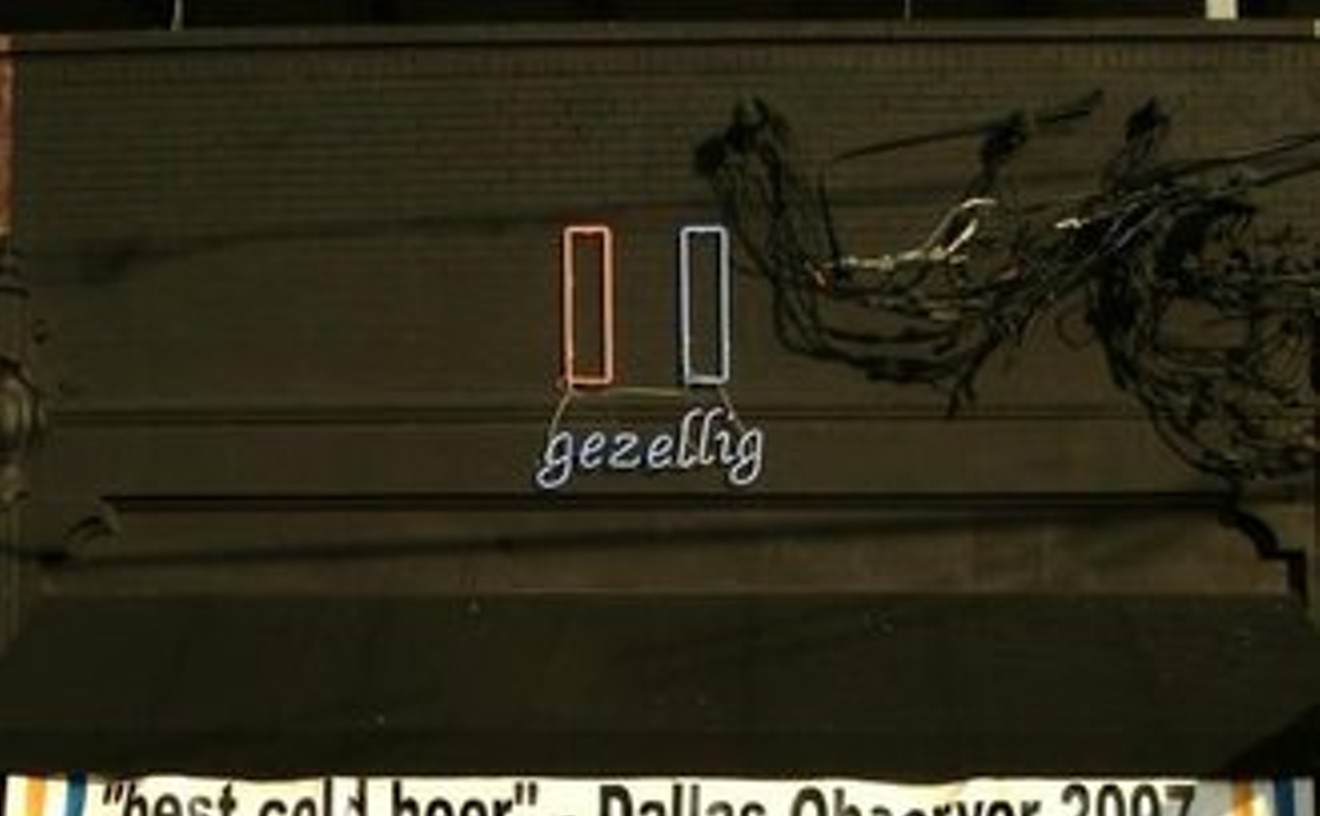
Based solely on aesthetics, Gezellig should be one of the best jazz bars in the state, let alone Dallas. Its undeniable cool interior with its dark wood floors and soft, colored lights makes for a perfect jazz setting. But is the venue hampered by its location among the booty bars of Lowest Greenville's meat market? Absolutely. Still, the club does its best to gloss over that fact—and succeeds in large part because of its weekly residency with Michael League and Friends. League is the bass player for the 2008 Dallas Observer Music Award Best Jazz Act-winning Snarky Puppy, and with him at the helm on Monday nights you know you're in for a laid-back time. Just make sure to stretch your fingers—for snapping, of course—ahead of time.
- 2010 Greenville Ave., Dallas, 75206 Map
Best Scenery While Doing a Faceplant
Oak Cliff Nature Preserve
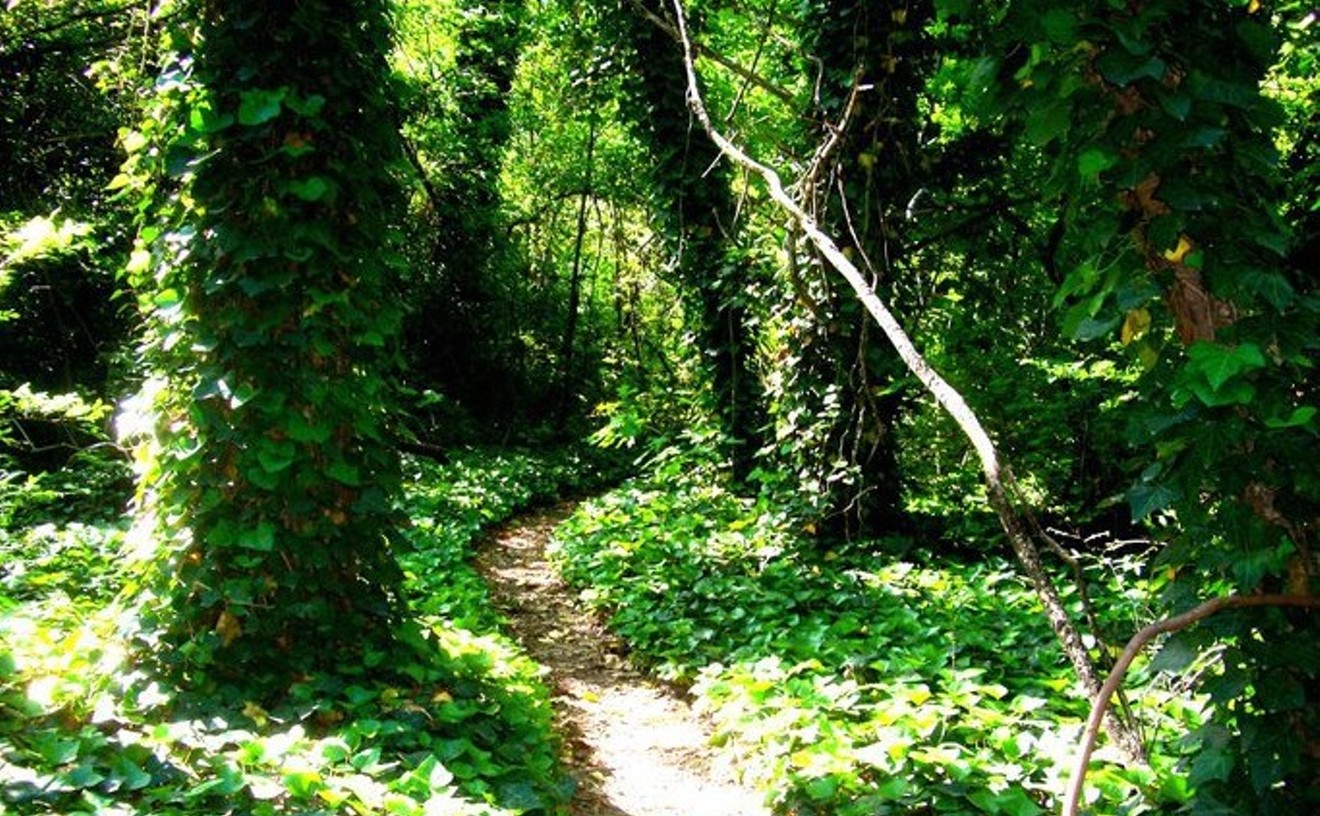
Hidden away behind a retirement home and the Hampton Illinois Branch library are 119 acres of barely tamed wilderness, home to a surprisingly diverse sampling of wildflowers, butterflies, birds and trees. Winding, looping and switching back through the preserve is a multiuse path for hikers and bikers alike. Maintained by volunteers, the park has exciting features including water crossings, ramps and bridges to keep riders on their toes. The preserve has about eight miles of trail, and Dallas Off-Road Bicyclist Association members led by Shadow Johns are creating more all the time. Be alert for hikers and riders coming your way, though, as there are tons of blind corners, thanks to all the trees.
- 2875 Pierce St., Dallas, 75233 Map
- www.facebook.com/groups/1914622852097290/


